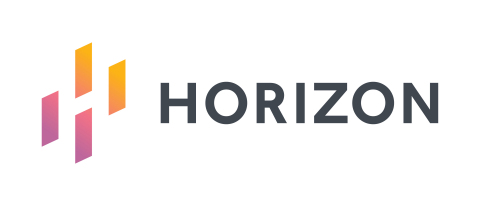New Initiative Encourages the Graves’ Disease Community to FOCUS on Eye Health
New Initiative Encourages the Graves’ Disease Community to FOCUS on Eye Health
-- Each share of the FOCUS graphic on social media will generate a donation from Horizon to the patient advocacy organization, Prevent Blindness --
DUBLIN--(BUSINESS WIRE)--Today, in support of Graves’ Disease Awareness Month, Horizon Therapeutics plc (Nasdaq: HZNP) and Prevent Blindness, the nation’s oldest volunteer eye health organization, launched an initiative encouraging people who are living with Graves’ disease to FOCUS on their eye health by recognizing the symptoms of a separate, but related disease called Thyroid Eye Disease (TED). Up to half of people with Graves’ disease will develop TED – a serious, progressive and vision-threatening rare autoimmune disease that causes painful symptoms like eye bulging, double vision and facial disfigurement.1,2
The initiative, which was developed with input from the Graves’ disease and TED community, features a memory device that uses the word FOCUS to help people take steps to recognize and manage TED. Now through July 31, 2020, Horizon will donate $1 (up to $25,000) to Prevent Blindness each time the FOCUS graphic is shared on social media.
“When first diagnosed with Graves’ disease, I thought the eye symptoms were just one facet of this rare autoimmune disease,” said Christine G., who has been living with TED for 10 years. “Similar to others with TED, I had light sensitivity, grittiness, pain, swelling and bulging of my eyes. After years of struggling to find answers, I learned that TED needed to be managed separately from Graves’. With this knowledge, an entirely new world of hope opened before me. I am confident that this initiative will help others get an accurate diagnosis and will provide them with the vital resources and support now available to them.”
The FOCUS memory device includes the following steps:
- Figure out your risk for TED
- Observe your symptoms
- Contact an eye specialist, such as an ophthalmologist, neuro-ophthalmologist or oculoplastic surgeon (visit TEDdoctors.com)
- Use resources to educate yourself and take action
- Speak up for the care you deserve
“Prevent Blindness is committed to helping people who live with low vision, vision impairment and vision-related eye diseases feel empowered to speak up and get the care they deserve,” said Jeff Todd, president and chief executive officer, Prevent Blindness. “People living with TED don’t have to struggle in silence. There are resources, like this initiative, that can help. We are proud to be a part of bringing much-needed attention to this often overlooked eye disease.”
People who are living with Graves’ disease are encouraged to pay attention to changes in their eyes and visit an eye specialist, such as an ophthalmologist, neuro-ophthalmologist or oculoplastic surgeon, to get an eye exam. Spotting the signs and symptoms of TED early can help decrease the chances of serious and potentially permanent eye damage.3 All FOCUS resources will be posted throughout the month of July to the Listen to Your Eyes Facebook community. Additional information about TED can be found at ThyroidEyes.com, including what symptoms to watch for, a tool for tracking symptoms and a specialist finder; and on the Prevent Blindness website.
“Over the past few years, we have been fortunate to listen and learn from the TED community about their experiences with this truly life changing disease, and how we can provide education and support,” said Matt Flesch, vice president, communications and patient advocacy, Horizon. “We often hear from people living with TED that not only is it difficult to distinguish the eye symptoms caused by TED from all of the other symptoms caused by Graves’ disease, but that it is also incredibly difficult to know where to go for support. This initiative was created to clear up the confusion and direct people to useful resources that will help them along their journey.”
About Graves’ Disease
Graves’ disease is an autoimmune disease that causes the thyroid gland to produce excess thyroid hormones.2 These hormones control a variety of bodily functions, from metabolism and breathing to heart rate, body temperature and cognitive emotions.4 Common symptoms of Graves’ disease include anxiety, tremors, heat sensitivity, weight loss, hair loss, change in menstrual cycle and irregular heartbeat; many of which are present in other diseases, leading to misdiagnosis or delayed diagnosis.5
About Thyroid Eye Disease
TED is most often seen in patients with Graves’ disease – affecting up to half of people with Graves’ – but it is a distinct disease that requires separate treatment.1,2,6 A diagnosis of TED may even precede a finding of Graves’ and can serve as an early warning sign of future thyroid dysfunction.7 TED can also occur in Hashimoto’s hypothyroidism or even in patients with neither diagnosis.6 Common symptoms of TED include light sensitivity, eye grittiness, bulging eyes and double vision, among others – all of which can reduce a person’s independence, ability to work and self-confidence.3,8 In fact, people living with TED often experience long-term functional, psychosocial and economic burdens, including inability to work and perform activities of daily living.8,9
About Prevent Blindness
Founded in 1908, Prevent Blindness is the nation's leading volunteer eye health and safety organization dedicated to fighting blindness and saving sight. Focused on promoting a continuum of vision care, Prevent Blindness touches the lives of millions of people each year through public and professional education, advocacy, certified vision screening and training, community and patient service programs and research. These services are made possible through the generous support of the American public. Together with a network of affiliates, Prevent Blindness is committed to eliminating preventable blindness in America. For more information, or to make a contribution to the sight-saving fund, call 1-800-331-2020. Or, visit us on the Web at preventblindness.org or facebook.com/preventblindness.
About Horizon
Horizon is focused on researching, developing and commercializing medicines that address critical needs for people impacted by rare and rheumatic diseases. Our pipeline is purposeful: we apply scientific expertise and courage to bring clinically meaningful therapies to patients. We believe science and compassion must work together to transform lives. For more information on how we go to incredible lengths to impact lives, please visit www.horizontherapeutics.com and follow us on Twitter, LinkedIn, Instagram and Facebook.
References
- Lazarus JH. Epidemiology of Graves’ orbitopathy (GO) and relationship with thyroid disease. Best Pract Res Clin Endocrinol Metab. 2012;26(3):273-279.
- Smith TJ, Hegedüs L. Graves’ disease. N Engl J Med. 2016;375(16):1552-1565.
- Barrio-Barrio J, Sabater AL, Bonet-Farriol E, Velazquez-Villoria A, Galofre JC. Graves’ Ophthalmopathy: VISA versus EUGOGO Classification, Assessment, and Management. Journal of Ophthalmology. 2015:1-16.
- About Graves’ Disease. Graves’ Disease & Thyroid Foundation. https://www.gdatf.org/about/about-graves-disease/. Accessed June 17, 2020.
- Graves’ Disease. National Institute of Diabetes and Digestive and Kidney Diseases. https://www.niddk.nih.gov/health-information/endocrine-diseases/graves-disease. Accessed June 17, 2020.
- Eckstein AK, Losch C, Glowacka D, et al. Euthyroid and primarily hypothyroid patients develop milder and significantly more asymmetrical Graves’ ophthalmopathy. Br J Ophthalmol. 2009;93(8):1052-1056.
- McAlinden C. An overview of thyroid eye disease. Eye Vis (Lond). 2014;1:9. Published 2014 Dec 10. doi:10.1186/s40662-014-0009-8
- Ponto KA, Pitz S, Pfeiffer N, Hommel G, Weber MM, Kahaly GJ. Quality of life and occupational disability in endocrine orbitopathy. Dtsch Arztebl Int. 2009;106:283-299.
- Ponto KA, Merkesdal S, Hommel G, Pitz S, Pfeiffer N, Kahaly GJ. Public health relevance of Graves’ orbitopathy. Journal of Clinical Endocrinology & Metabolism. 2013;98:145-152.
Contacts
U.S. Media Contacts:
Matt Flesch
Vice President, Communications and Patient Advocacy
media@horizontherapeutics.com
Rachel Vann
Associate Director, Product Communications
media@horizontherapeutics.com


